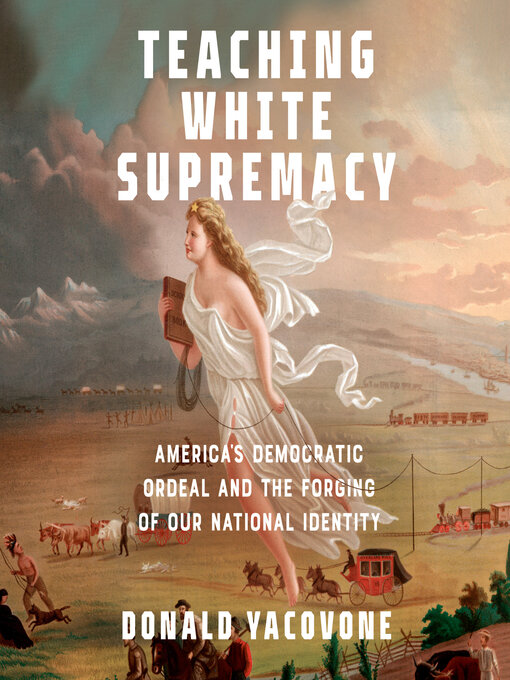Teaching White Supremacy
America's Democratic Ordeal and the Forging of Our National Identity
“The most profoundly original cultural history in recent memory.” —Henry Louis Gates, Jr., Harvard University
“Stunning, timely . . . an achievement in writing public history . . . Teaching White Supremacy should be read widely in our roiling debate over how to teach about race and slavery in classrooms." —David W. Blight, Sterling Professor of American History, Yale University; author of the Pulitzer Prize–winning Frederick Douglass: Prophet of Freedom
Donald Yacovone shows us the clear and damning evidence of white supremacy’s deep-seated roots in our nation’s educational system through a fascinating, in-depth examination of America’s wide assortment of texts, from primary readers to college textbooks, from popular histories to the most influential academic scholarship. Sifting through a wealth of materials from the colonial era to today, Yacovone reveals the systematic ways in which this ideology has infiltrated all aspects of American culture and how it has been at the heart of our collective national identity.
Yacovone lays out the arc of America’s white supremacy from the country’s inception and Revolutionary War years to its nineteenth-century flashpoint of civil war to the civil rights movement of the 1960s and today’s Black Lives Matter. In a stunning reappraisal, the author argues that it is the North, not the South, that bears the greater responsibility for creating the dominant strain of race theory, which has been inculcated throughout the culture and in school textbooks that restricted and repressed African Americans and other minorities, even as Northerners blamed the South for its legacy of slavery, segregation, and racial injustice.
A major assessment of how we got to where we are today, of how white supremacy has suffused every area of American learning, from literature and science to religion, medicine, and law, and why this kind of thinking has so insidiously endured for more than three centuries.
-
Creators
-
Publisher
-
Release date
September 27, 2022 -
Formats
-
OverDrive Listen audiobook
- ISBN: 9780593628690
- File size: 367859 KB
- Duration: 12:46:22
-
-
Languages
- English
-
Reviews
-
Publisher's Weekly
Starred review from June 20, 2022
Harvard historian Yacovone (coauthor, The African Americans) delivers a monumental assessment of “how slavery, race, abolitionism and the Civil War and Reconstruction have been taught in our nation’s K-12 schoolbooks” from the 1830s to the present. Spotlighting writers, publishers, and educators including John H. Van Evrie, “the nation’s first professional racist,” whose 1866 textbook A Youth’s History of the Great Civil War in the United States, from 1861 to 1865 “guarantee that future generations would cherish white supremacy as the nation’s governing principle,” and Roscoe Conkling Bruce, the assistant superintendent of education for Washington, D.C.’s “colored schools” in the early 20th century, Yacovone documents the uphill battle to create history texts that accurately reflected the experiences of African Americans. In the decades before the Civil War, most textbooks avoided any detailed discussion of slavery; when mentioned, it was only as a source of political tensions between the states. Black narratives emerged in educational materials during Reconstruction, but were soon replaced by deeply flawed histories that promoted racist stereotypes and “categorically repudiated any version of slavery that stressed harsh or unjust conditions.” Yacovone’s survey is expansive and eye-opening, revealing that the problem was a national phenomenon—he calls out Northern authors for endorsing Lost Cause mythology and racist theories about the “supposedly gross incapacities of African Americans”—that greatly influenced the country’s political discourse. This troubling and powerful history is essential reading. Illus.
-
Formats
- OverDrive Listen audiobook
subjects
Languages
- English
Loading
Why is availability limited?
×Availability can change throughout the month based on the library's budget. You can still place a hold on the title, and your hold will be automatically filled as soon as the title is available again.
The Kindle Book format for this title is not supported on:
×Read-along ebook
×The OverDrive Read format of this ebook has professional narration that plays while you read in your browser. Learn more here.

